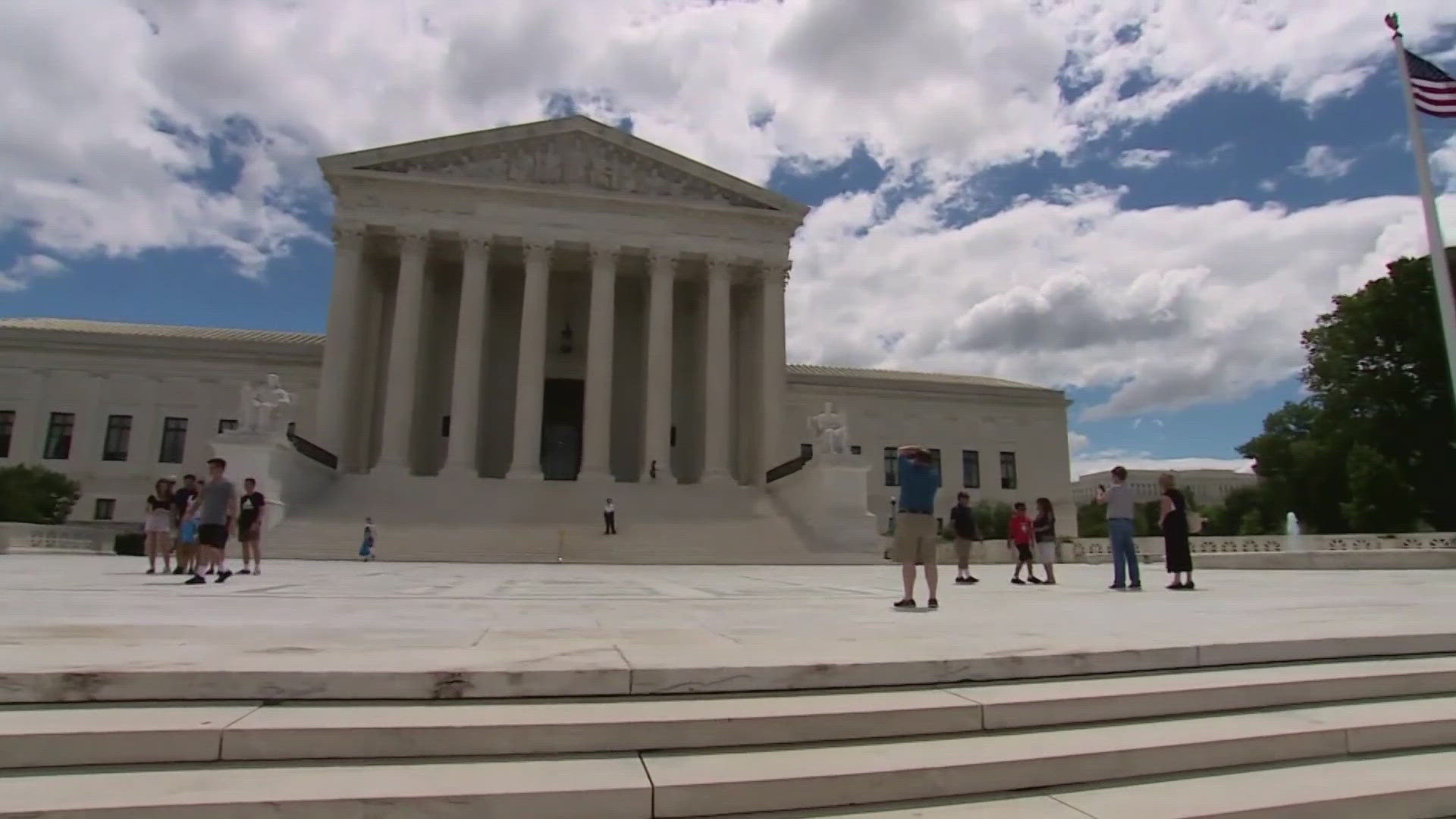WASHINGTON — President Biden has proposed major reforms to the Supreme Court after multiple ethics concerns -- but some wonder if lawmakers will ever enact them.
Early Monday, the President announced a three-prong plan to reform the nation's highest court:
- A "No One is Above the Law Amendment" to prohibit presidential immunity for any crimes a former President commits while in office
- 18-year term limits for Supreme Court justices
- An enforceable and binding ethics code
With the term limits, the President would have the opportunity to appoint a justice every two years to serve on the Supreme Court for 18 years.
He said in a press release, "Term limits would help ensure that the Court’s membership changes with some regularity; make timing for Court nominations more predictable and less arbitrary; and reduce the chance that any single Presidency imposes undue influence for generations to come."
President Biden also said that the United States is the only constitutional democracy that gives lifetime seats to its high court justices.
George Washington University Law Professor Alan Morrison agrees that it's time for term limits.
“Several things about this that are important. One is it will assure that individuals cannot time their retirement, so that the President that they like will be appointing them. Democrats and Republicans alike have done this, and it's not right. Nobody should be able to do that," Morrison said. "Second, it will also tend to push appointments to judges or individuals who are older and not -- there'll be no advantage to appointing somebody who's 41 years old to the court.”
Presidents have appointed younger judges in the past to ensure their agendas would be upheld for decades.
Morrison believes the limit would help balance appointing judges with the most experience but also make sure the Court regularly has fresh minds that are in tune with the current public conscience.
When it comes to the code of ethics, Morrison said the problem is not developing a code -- it's giving it teeth.
He said that federal statutes already require justices to disclose conflicts of interest -- but when they don't -- there is no mechanism to hold them accountable.
That's why the public has seen more stories recently about apparent ethics violations.
ProPublica released an investigation showing that Justice Clarence Thomas did not disclose luxury vacations gifted to him by Republican donors.
The AP reported that officials at different universities worked to pad event appearances by Justices Elena Kagan and Sonia Sotomayor with donors.
“Self enforcement by an individual justice hasn't worked, won't work and will never work. That's the problem," Morrison said. "And the justices have resisted anybody else enforcing it, even to the point of having the other members of the Court review decisions made by a particular justice not to sit on a case or not to file a particular gift as a gift.”
Morrison recalled a case he argued before the Supreme Court 20 years ago, in which he was representing the Sierra Club against the Office of the Vice President.
He said while the case was pending, Justice Scalia went on a duck hunting trip with the Vice President, so they motioned to recuse him from the case -- and he refused to do it.
"He, in effect, became a judge in his own case. And that seems to be not right," he said.
Morrison said that Justice Kagan suggested last week that maybe the code could be enforced by a group of senior federal judges, but she didn't lay out specifics for exactly how those judges would be selected or what their power would look like.
The big question is how likely is it that these reforms will become law?
"The first question is, can this be done by statute?" Morrison posed. "In my opinion, it can and it would be constitutional, but I used to take that position and support it that way. But I've now come to the conclusion that given the politics of today, that if it passed the statute, and another group of people got in office, and they thought it would be in their interest to change the statute, it could change. And that would be terrible for the country."
Instead, he supports codifying these reforms into a constitutional amendment.
“I think the American people will eventually go with a constitutional amendment because they will understand this is the right thing to do. And it will take longer, but it will be secure," he said. "I think it will happen. It's not going to happen anytime quickly, you got to get two thirds of both houses of Congress, and you've got to get three quarters of the states.”
He said an amendment would also help clarify how many justices the Supreme Court should have and how they handle transitions for those judges already on the Court.
"[We] don't amend the Constitution very often -- this is a pretty important thing to amend the constitution for," he said.

